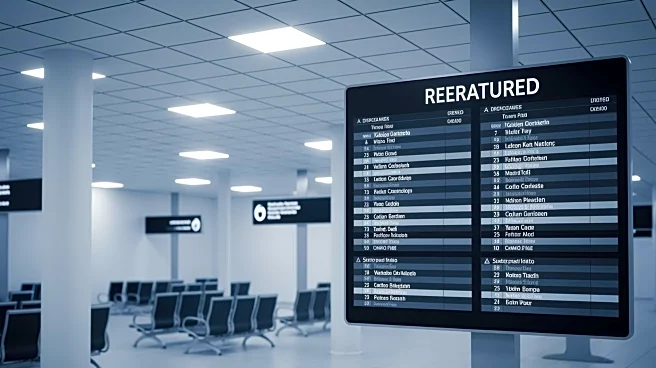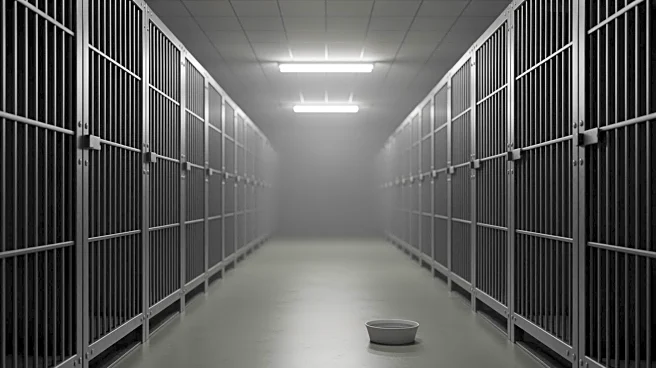What's Happening?
The Trump administration has mandated a reduction in airline flights due to the ongoing government shutdown, causing significant disruptions for travelers. The emergency order requires airlines to cut
flights by 4% initially, with increases to 6%, 8%, and 10% over the following days, potentially reaching 20% if the shutdown persists. This measure aims to alleviate pressure on air traffic controllers, who are working without pay. Travelers at major airports like Los Angeles International Airport (LAX) are experiencing delays and cancellations, with some opting to cancel their trips altogether. The situation has left many passengers anxious about their travel plans, especially with upcoming holidays.
Why It's Important?
The flight reductions are a direct consequence of the government shutdown, highlighting the broader impact of political stalemates on everyday life. The aviation industry, already strained by staffing shortages, faces additional challenges as air traffic controllers work unpaid. This situation could lead to increased operational costs for airlines and inconvenience for passengers, potentially affecting holiday travel plans. The disruptions underscore the interconnectedness of government operations and private sector activities, emphasizing the need for resolution to prevent further economic and social repercussions.
What's Next?
If the government shutdown continues, flight reductions may increase, further complicating travel plans for many Americans. Airlines might need to adjust schedules and resources to accommodate the changes, while passengers may face more cancellations and delays. The situation could prompt calls for political leaders to resolve the shutdown to restore normalcy in air travel and other affected sectors. Stakeholders, including airlines and consumer advocacy groups, may push for measures to mitigate the impact on travelers.
Beyond the Headlines
The ongoing situation raises questions about the resilience of critical infrastructure during political crises. The reliance on government-employed air traffic controllers highlights vulnerabilities in the aviation sector. Additionally, the shutdown's impact on travel could influence public opinion on government efficiency and accountability, potentially affecting future elections and policy decisions.









